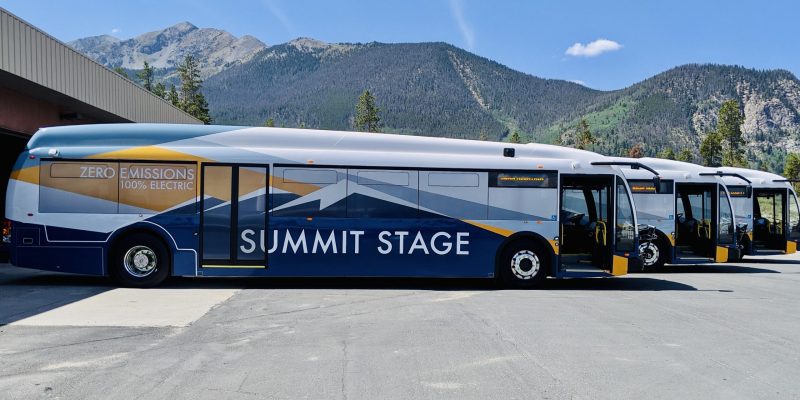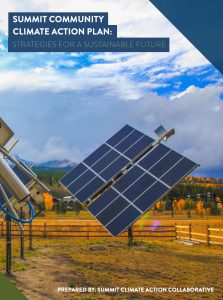Facing the Climate Change Crisis
No community is immune to the impacts of climate change, not even the high-elevation towns of Summit County. HC3’s Climate Action work brings together stakeholders from across the community to develop new programs and policies that fight climate change in Summit County, so we protect the beautiful mountain communities we all call home.
We also know that we won’t meet our shared climate action goals without participation from everyone in the community – no matter their income, housing status, or preferred language. That’s why, in 2023, we collaborated with stakeholders to create a Climate Equity Plan. Grounded in extensive community feedback, this plan outlines priority strategies for ensuring all Summit County residents benefit from climate action programs that improve quality of life while also decreasing greenhouse gas emissions. Lea el Plan de Equidad Climática en español.

Climate Action Plan + Greenhouse Gas Emissions Inventory
Adopted by the towns of Breckenridge, Dillon, Frisco, Silverthorne and Summit County government, the Summit Community Climate Action Plan is the guiding document for our work. It outlines strategies for reducing local greenhouse gas emissions across four key sectors: Renewable Energy, Building Energy, Transportation, and Waste.
To track progress, the Greenhouse Gas Emissions Inventory is updated every three years. To learn more about local emissions, check out our interactive 2020 inventory.

Our Initiatives
Sustainable Building Codes
These new codes require new homes and buildings in Summit County to be built to stringent energy efficiency standards, improving home comfort and durability, and reducing utility costs.
More about Sustainable Building Codes
Electric Vehicle Readiness Plan
A widespread transition to electric vehicles (EV) is one of the most important strategies we have for reducing transportation emissions. This plan is designed to make driving or riding in an EV more convenient for Summit County residents and visitors.
More about Electric Vehicle Readiness Plan
Solarize Summit
Electricity use is the third largest source of our community’s emissions. Fortunately, the solution is easy – more renewable energy on our grid. Summit County’s primary utility provider, Xcel Energy, has a goal to generate 80% renewable electricity by 2030. But for county residents who want to produce their own clean electricity on their rooftops, the Solarize Summit offers cash incentives and a streamlined process.
More about Solarize Summit
Climate Change in Colorado



